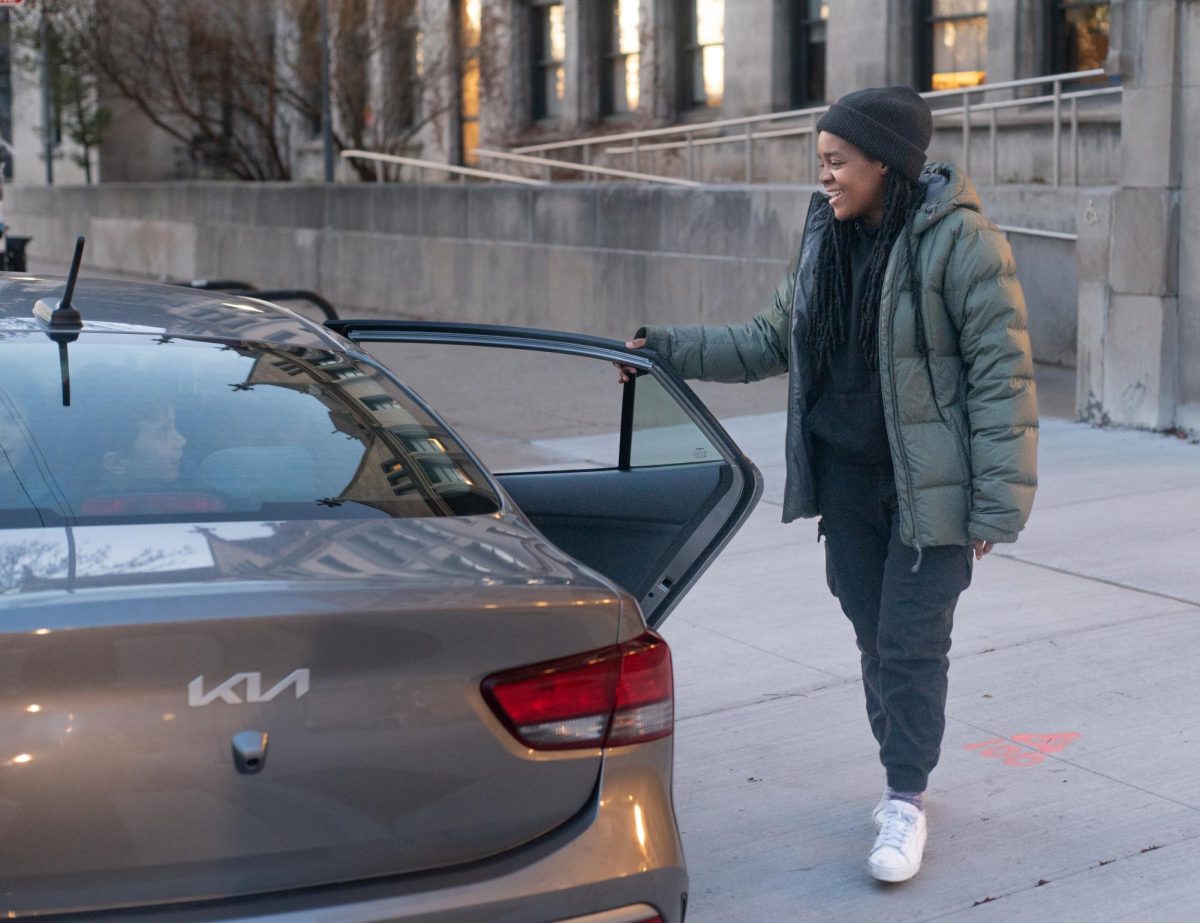“Do people in the United States really act like this?” “Is this place real?” With these questions in mind and a little babysitting experience under her belt, Lindiwe Jackson from Johannesburg, South Africa, decided to take a big leap and join the United States Department of State’s au pair program.
“Just having a phone, you are always influenced by America,” Lindiwe said. “But also, being a film student, the USA has one of the biggest film influences in the world, so I was like … this au pairing opportunity will let me travel and go to the USA.’”
For Ms. Jackson, traveling to and living in the United States as an au pair has shown her the significant cultural differences between the United States and her home, and granted her freedom and independence.
The au pair program is a cultural exchange opportunity with participants from six continents and around 60 countries. They live with a host family for up to two years in the place of their choice, providing child or house care.
Ms. Jackson came to Chicago in July and lives in Hyde Park with her five-member Lab host family. Her daily responsibilities include driving the three children to and from school and their extracurricular activities. At the house, Ms. Jackson keeps them company, makes the meals and does the laundry.
Ms. Jackson said she heard about Chicago’s bad reputation but that the city was much better than expected.
“Everyone talks badly about Chicago when it’s one of the prettiest cities I have ever been to,” she said. “So, that was a nice surprise.”
Ms. Jackson has the weekends free, so she likes to use the time to explore and travel. So far, she has toured downtown Chicago and traveled to California and New York. Ms. Jackson said she plans to travel more.
However, Ms. Jackson has also faced social challenges. As a social person, she said it’s more challenging to make friends in the United States than back home. Ms. Jackson said she and her fellow Chicago au pairs have had difficulty breaking into the social network, a part of what she has noticed more broadly about American culture.
“In South Africa, we will just randomly spark a conversation with a stranger,” she said. “In America, it seems much more individualistic: ‘If you’re talking to me, why are you talking to me, and what do you want?’ Not like, ‘You’re just talking to me because you want to talk.’ Which I guess in South Africa is more of a thing.”
Ms. Jackson also said living in the United States has changed her perception of America.
“The narrative was that America was this perfect country where everything works,” she said. “But you see the homelessness, the drug problems and all of these raw issues. It’s like there really is no perfect place.”
Ms. Jackson noticed that the United States is more expensive than South Africa and other countries when she saw a shirt she liked at Target. Lindiwe converted the $15 T-shirt into rands, South Africa’s currency, and was astonished by the price.
“For us, it is absolutely insane to pay that much money for a T-shirt,” she said. “If I were to tell my friends I spent over 200 rands on a T-shirt, they would be like, ‘What on Earth are you doing?’ But here, it is just the standard.”
Ms. Jackson said at first, when many au pairs convert their salary, it seems like a lot of money.
She said, “But, the moment you arrive in America and see the general prices of living in America, you’re like, ‘Woah, this is actually not a lot of money.”
Outside of the au pair program and in Ms. Jackson’s free time, she likes playing recreational soccer and dancing.
Fourth grader Celia Talbott, one of the three children, said having Lindiwe around makes traveling from extracurriculars convenient. Celia also said Lindiwe is entertaining to be around.
“Lindiwe is really great company,” Celia said. “She’s always there for us and open to do stuff. I would definitely recommend the program to others.”
Ms. Jackson plans to return to South Africa and study film at the University of Cape Town. In the meantime, she hopes to get an EMT license and save money from the program, which would “unlock” many opportunities after exchanging it for rands. Her dream is to live in Europe.
Ms. Jackson said the realizations and knowledge she has gained from living in the United States have been invaluable. The program has given her a taste of America, but she craves more. She said the program was one of the best decisions she has ever made.
“You may not have your support system from back home, which can also be seen as a mainly bad thing, but it kind of forces you to go find new ones and find new things you like to do to refind yourself in a brand new city,” Ms. Jackson said. “It’s terrifying but also super rewarding.”





















































